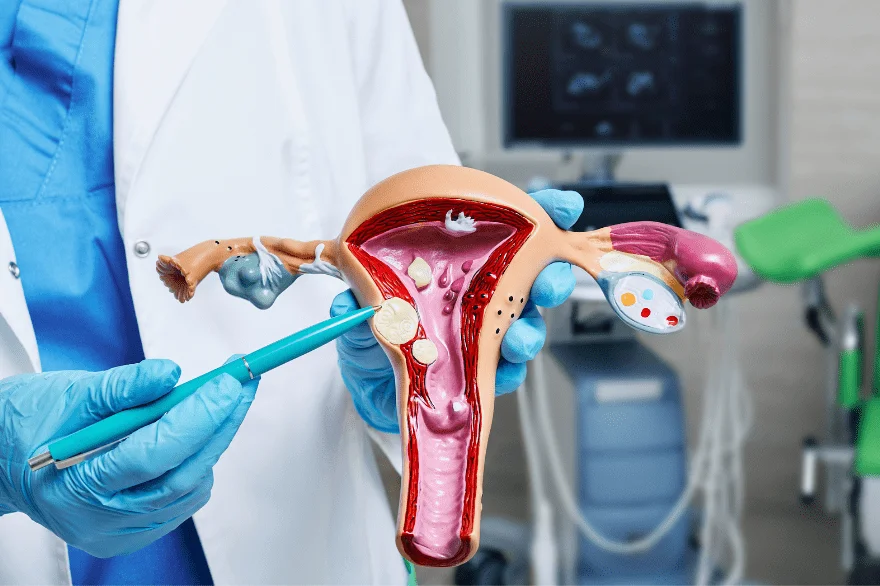
Gynaecology is a crucial branch of medicine that focuses on the health of the female reproductive system. It encompasses a wide range of conditions, from menstrual irregularities to hormonal imbalances, and emphasizes preventive care and early intervention. This blog delves into common gynaecological diseases, their treatments, precautions, and actionable health tips for women of all ages.
Common Gynaecological Diseases
1. Polycystic Ovary Syndrome (PCOS)
- Cause: Hormonal imbalance affecting the ovaries.
- Symptoms: Irregular periods, excessive hair growth, acne, and weight gain.
- Treatment: Lifestyle changes, hormonal therapy, and medications like metformin.
2. Endometriosis
- Cause: Tissue similar to the uterine lining grows outside the uterus.
- Symptoms: Severe menstrual pain, heavy periods, and infertility.
- Treatment: Pain management, hormonal therapy, or surgery in severe cases.
3. Fibroids
- Cause: Non-cancerous growths in the uterus, often influenced by hormones.
- Symptoms: Heavy bleeding, pelvic pain, frequent urination.
- Treatment: Medications, non-invasive procedures, or surgical removal.
4. Urinary Tract Infections (UTIs)
- Cause: Bacterial infections in the urinary system.
- Symptoms: Burning sensation during urination, frequent urge to urinate, and cloudy urine.
- Treatment: Antibiotics and increased fluid intake.
5. Cervical Dysplasia
- Cause: Abnormal changes in cervical cells, often linked to HPV.
- Symptoms: Often asymptomatic but detectable through Pap smears.
- Treatment: Monitoring, cryotherapy, or surgical intervention.
Gynaecology Health Tips
- Regular Screenings: Schedule routine pelvic exams and Pap smears to detect abnormalities early.
- Balanced Diet: Incorporate foods rich in iron, calcium, and folic acid to maintain hormonal balance and reproductive health.
- Exercise Regularly: Physical activity helps regulate hormones and manage weight, reducing the risk of conditions like PCOS.
- Practice Safe Hygiene: Use mild, unscented products for intimate hygiene to prevent infections.
- Stay Hydrated: Adequate water intake helps prevent UTIs and supports overall reproductive health.
- Manage Stress: Chronic stress can affect menstrual cycles and overall gynaecological health.
Causes and Precautions in Gynaecology
Causes of Common Gynaecological Issues
- Hormonal imbalances due to lifestyle or genetic factors.
- Poor hygiene leading to infections.
- Lack of awareness about reproductive health.
- Unprotected sexual activity increasing the risk of STDs.
Precautions to Ensure Gynaecological Health
- Maintain a healthy weight to reduce the risk of hormonal disorders.
- Use protection during sexual activity to prevent infections and STDs.
- Avoid smoking and excessive alcohol consumption, which can affect reproductive health.
- Stay informed about vaccinations like the HPV vaccine to prevent cervical cancer.
- Consult a gynaecologist at the first sign of irregularities or discomfort.
Conclusion
Gynaecology plays a pivotal role in maintaining a woman’s overall health and well-being. Understanding common diseases, their treatments, and taking preventive measures can lead to healthier and more fulfilling lives.
By adopting a proactive approach to gynaecological health, including regular check-ups, a balanced lifestyle, and awareness of symptoms, women can prevent complications and ensure long-term wellness. Remember, early detection and timely treatment are key to addressing gynaecological concerns effectively. Prioritize your health today for a brighter and healthier tomorrow.
